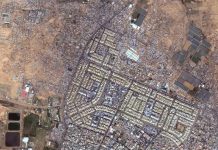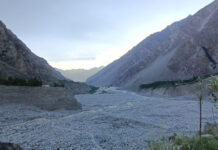Muhammad bin Tughlaq was a bunch of paradoxes that proved hazardous for not only his own
good as well as for the Delhi Sultanate.
He was deeply read in religion and philosophy and had a critical and open mind. He was also prepared to give high offices to people on the basis of merit, irrespective of whether they belonged to noble families or not.
But his major drawback was that he was extremely impatient and unremittingly cruel. His reign was an unfortunate odyssey of ill-planned measures that profoundly destabilised his domain and put the people to atrocious troubles. It was therefore not surprising that most of his experiments failed and his reign ended in a grand failure.
Muhammad Tughlaq was confronted by adversity right from the beginning as his reign started inauspiciously. He succeeded his father Sultan Ghiyasuddin Tughlaq who was killed by a falling structure of the wooden pavilion he prepared for his father and was consistently accused of planning his father’s death.

Sometime after mounting the throne Muhammad Tughlaq decreed shifting of the imperial capital from Delhi to Deogir, named Daulatabad with the intention of controlling his domain better from a central location.
Unmindful of the consequences he ordered official machinery to organise the shifting which it did forcefully causing tremendous distress to people.
Though Muhammad Tughlaq built a road from Delhi to Daulatabad and set up rest houses on the way to help the travellers, Daulatabad was more than 1500 kilometres away resulting in deaths on a massive scale.
Many of those who reached Daulatabad felt homesick, for some of them had lived for several generations in Delhi and looked upon it as their home.
There was a good deal of discontent that probably made Muhammad Tughlaq to abandon Daulatabad, largely because he soon found that just as he could not control the south from Delhi, he could not control north India from Daulatabad.
Despite the catastrophe caused by this decision, the exodus did have a number of long-range benefits such as bringing north and south India closer together by improving communications. The people from Delhi who settled in Daulatabad did spread the cultural, religious and social ideas which the Turks had brought with them to north India facilitating cultural interaction between north and south.
The most controversial step the Sultan took was the introduction of the token currency. There was a shortage of silver in the world in the fourteenth century and Muhammad Tughlaq decided to introduce a bronze coin which was to have the same value as the silver tanka.
The idea of token currency was a new one in the subcontinent and the difficulties mounted when the government failed to prevent people from forging new coins and soon the new coins were greatly devalued in the markets.
Finally, Muhammad Tughlaq decided to withdraw the token currency with the promise to exchange silver pieces for bronze coins. The forged coins were heaped up outside the fort and they remained lying
there for many years. The failure of these two experiments negatively affected the prestige of the sovereign and also resulted in tremendous wastage of money.
A far more serious problem now confronted the Sultan as the security of borders was challenged. In the early years of Muhammad Tughlaq’s reign, the Mongols under their leader Tarmashrin burst into Sindh and a force reached up to Meerut, about 65 kilometers from Delhi.

Muhammad Tughlaq not only defeated the Mongols in a battle near Jhelum but also occupied Kalanaur and for some time his power extended beyond the Indus up to Peshawar.
This showed that the sultan of Delhi was now in a position to go over to the offensive against the Mongols. After coming back from Deogir, the sultan recruited a large army in order to occupy Ghazni, Afghanistan, Khurasan and Iraq. Many of the princes and others who had fled from Central Asia and taken
shelter at the court of Muhammad Tughlaq may have thought that it was a good opportunity to oust the Mongols from the area.
After a year, and following the failure of the experiment of establishing a token currency, and
improvement of relations with the Mongols,the army was disbanded.
Moreover, administration, especially revenue administration, and his relations of the Sultan with the nobles also resulted in some serious problems.
The Sultan had to face the nobility as he discontinued heavy reliance on nobles in running the administration and started entertaining people who did not belong to noble families but to professions such as barbers, cooks, weavers and wine-makers and he gave them important offices.
Most of these were the descendants of the Muslim converts, though a few Hindus were also included and most of them were not suited for the jobs they were assigned causing serious resentment amongst the nobility.

The Sultan also welcomed foreigners to the nobility, a large number of whom came to his court.
The nobility of Muhammad Tughlaq consisted of many divergent sections and the result was that there was hardly any cohesion in it.
It actually provided opportunities for rebellion and for striving to carve out independent spheres of authority. The hot and hasty temperament of Muhammad Tughlaq and his tendency to give extreme punishments to those whom he suspected of opposition or disloyalty strengthened this trend.
It is difficult to say whether the measures failed because of bad planning or faulty implementation by officials who lacked experience.
Soon after he took over there was a serious peasant rebellion in the Gangetic doab and peasants fled the villages compelling the Sultan to take harsh measures to capture and punish them. The reason for the disturbances was over-assessment.
Although the share of the state remained half as in the time of Alauddin Khilji, it was fixed arbitrarily, not on the basis of actual production.
Prices were also fixed artificially for converting the produce into money. A severe famine which ravaged the area for half a dozen years made the situation worse.
Efforts at relief by giving advances for cattle and seeds and for digging wells came too late. The capital witnessed so many deaths that it became pestilential forcing the Sultan to leave Delhi for two and half years and he lived in a camp called Swargadwari, 100 miles from Delhi on the banks of the Ganges near Kanauj.
After returning to Delhi, Muhammad Tughlaq launched a scheme to extend and improve cultivation in the doab. He set up a separate department called Diwan-i-Amir-i-Kohi.
The area was divided into development blocs headed by an official whose job was to extend cultivation by giving loans to the cultivators and induce them to cultivate superior crops— wheat in place of barley, sugarcane in place of wheat, grapes and dates in place of sugarcane.
The scheme failed largely because the men chosen for the purpose proved to be inexperienced and dishonest and misappropriated the money.
The large sums of money advanced for the project could not be recovered. Fortunately for all concerned, Muhammad Tughlaq had died in the meantime, and his successor Firoz Tughlaq wrote off the loans.
During the latter half of Muhammad Tughlaq’s reign, there were repeated rebellions in
different parts of the Sultanate. Muhammad Tughlaq’s difficulties were several as the rebellions occurred in unnerving frequency in Bengal, in Mabar (Tamil Nadu), Warangal, Karnataka, West Bengal, Awadh, Gujarat and Sindh.
Muhammad Tughlaq did not trust anyone so he dashed from one part of the country to the other to suppress the rebellions and wore out his armies.
After some time, plague broke out in the army and two-thirds of the army perished.This was a blow from which Muhammad Tughlaq could never recover.
The erratic policies of Muhammad Tughlaq created deep discontent among the nobles as well as in the army. He had also clashed with Muslim theologians and the Sufi saints who were very influential further aggravating the Sultanate.
This article originally appeared in The Weekender and has been reproduced with permission





























